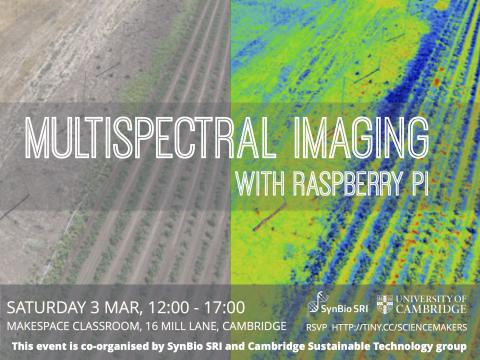During this Science Maker session, we will aim to build a multispectral camera and enclosure. Once they are finished, we will take photographs in the surrounding area and learn to process them!
Multispectral imaging is a sensing technique where a spectrum is obtained for all of the points in an image of a scene, allowing the user to detect signatures across different parts of the spectrum. In agriculture, spectrum information gives good insights into crop stress. multispectral cameras mounted on drones or aircraft allows quick assessments to be performed for yields across large areas of farmland, allowing for targeted use of fertilisers and irrigation.
This sensing technique is also used to classify different mineral groups, monitoring industrial emissions, and to detect different pigments in antique art.
Professional multispectral cameras will typically cost ~£5000, however excellent imaging for plants can be achieved using several NoIR camera modules (with filters) using a Raspberry Pi computer. Processing the images can be done using online tools or by writing your own program (for example with OpenCV).
This event is jointly organised by the Cambridge Synthetic Biology and Sustainable Technology groups.

Timings
12:00 - Arrival and introductions
12:15 - Talks and discussion
13:30 - Pizza
14:00 - Making a multispectral camera!
17:00 - Finish
Science Makers is a monthly event to discuss and build low-cost, DIY and open hardware for science and education. All are welcome for the talks, making or both! It is primarily designed for adults, accompanied children are allowed to attend but please alert the organisers.

